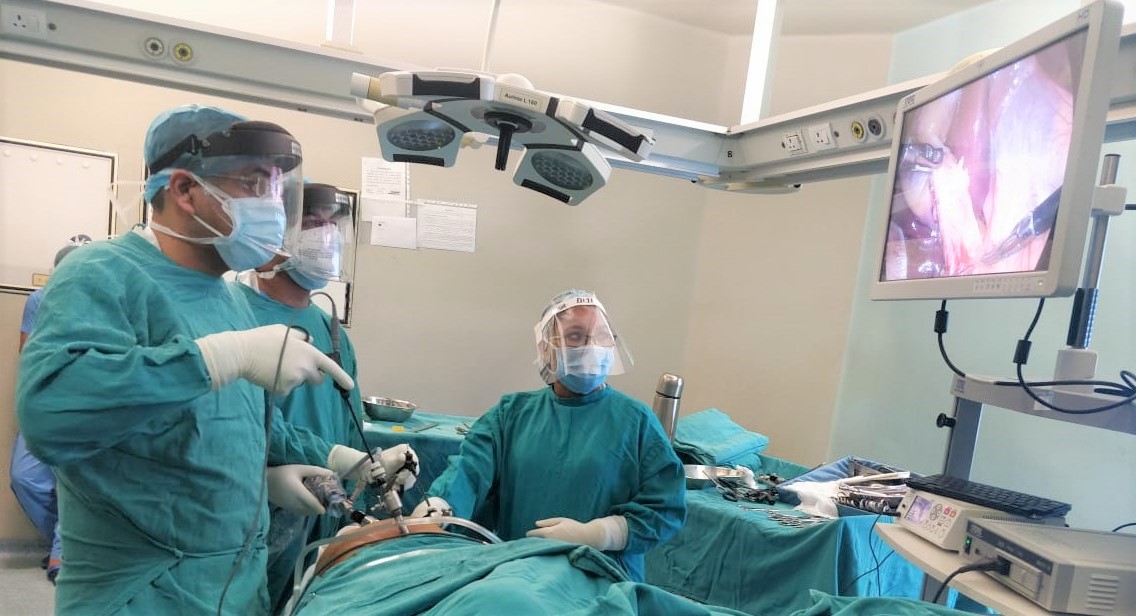Certainly! Here are some potential risks and complications associated with laparoscopic gynecological procedures that a “Laparoscopic Gynecologist” can help clarify:
Infection:
- Explanation: Despite sterile techniques, infections can occur at the incision sites or within the pelvic cavity. A laparoscopic gynecologist can provide preventive measures and recognize early signs of infection for prompt treatment.
Bleeding:
- Explanation: While laparoscopic procedures usually involve minimal blood loss, there is still a risk of bleeding from the surgical site or internal organs. The specialist ensures careful surgical techniques to minimize this risk and manages any unexpected bleeding efficiently.
Damage to Surrounding Organs:
- Explanation: The proximity of the reproductive organs to the bladder, intestines, and blood vessels means these structures can be inadvertently injured during surgery. A skilled laparoscopic gynecologist is trained to navigate these risks and repair any damage if it occurs.
Anesthesia-related Complications:
- Explanation: General anesthesia carries risks such as allergic reactions, respiratory issues, and cardiovascular complications. The gynecologist works with an anesthesiologist to ensure patient safety and manage any anesthesia-related issues.
Adhesions:
- Explanation: Scar tissue can form post-surgery, causing organs to stick together. This can lead to pain and complications in future surgeries. The gynecologist uses techniques to minimize adhesion formation and provides strategies for managing them if they occur.
Hernia Formation at Incision Sites:
- Explanation: Small incisions can sometimes develop hernias post-surgery. The specialist can advise on signs to watch for and recommend treatments if a hernia develops.
Gas Embolism:
- Explanation: During laparoscopic surgery, carbon dioxide gas is used to inflate the abdomen, which can potentially enter the bloodstream and cause serious complications. The gynecologist monitors gas levels and patient response to prevent and manage this rare occurrence.
Chronic Pain:
- Explanation: Some patients may experience persistent pain after the procedure. The specialist can help identify the cause and develop a pain management plan.
Conversion to Open Surgery:
- Explanation: In some cases, the laparoscopic approach may need to be converted to an open surgery due to complications or visibility issues. The gynecologist prepares for this possibility and ensures a smooth transition if needed.
Post-operative Recovery Issues:
- Explanation: Complications such as prolonged pain, bloating, or delayed return to normal activities can occur. The specialist provides detailed post-operative care instructions and follow-up to monitor recovery.
A “Laparoscopic Gynecologist” in Kota can help patients understand these risks, take preventive measures, and manage any complications that may arise, ensuring a safe and effective surgical experience.





Comments